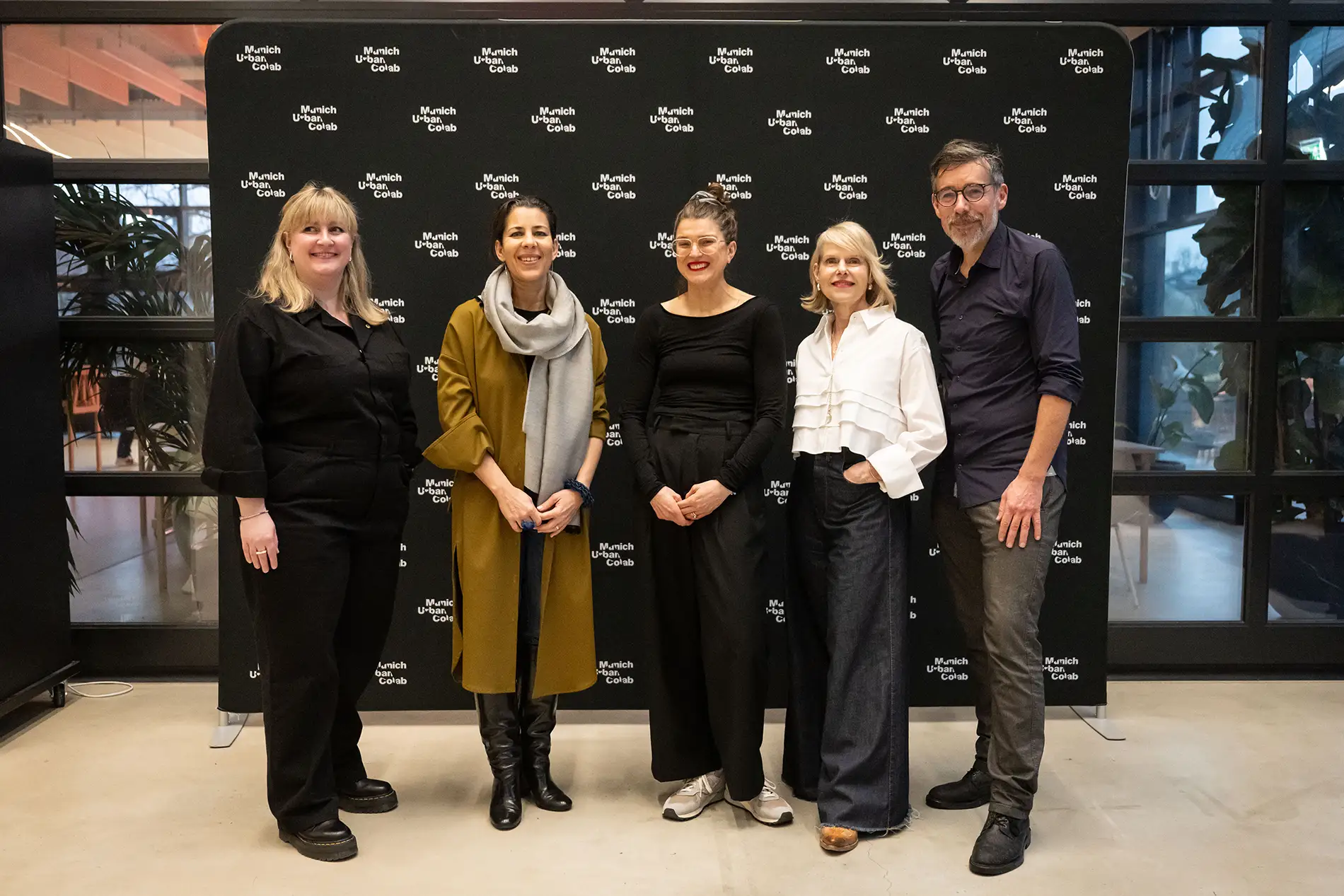Why do we need communities? How can they create spaces for innovation and collaboration? And what role do they play in urban development? These questions were the focus of "Inspiration & Talk" at Munich Urban Colab. Nadine Vicentini from bayerndesign, Marco Eisenack from Mucbook and the Munich Innovation Crew, Julia Christiansen from the City of Munich and Sonja Pham from Grafikmagazin shared their perspectives - moderated by host Sabine Hansky.
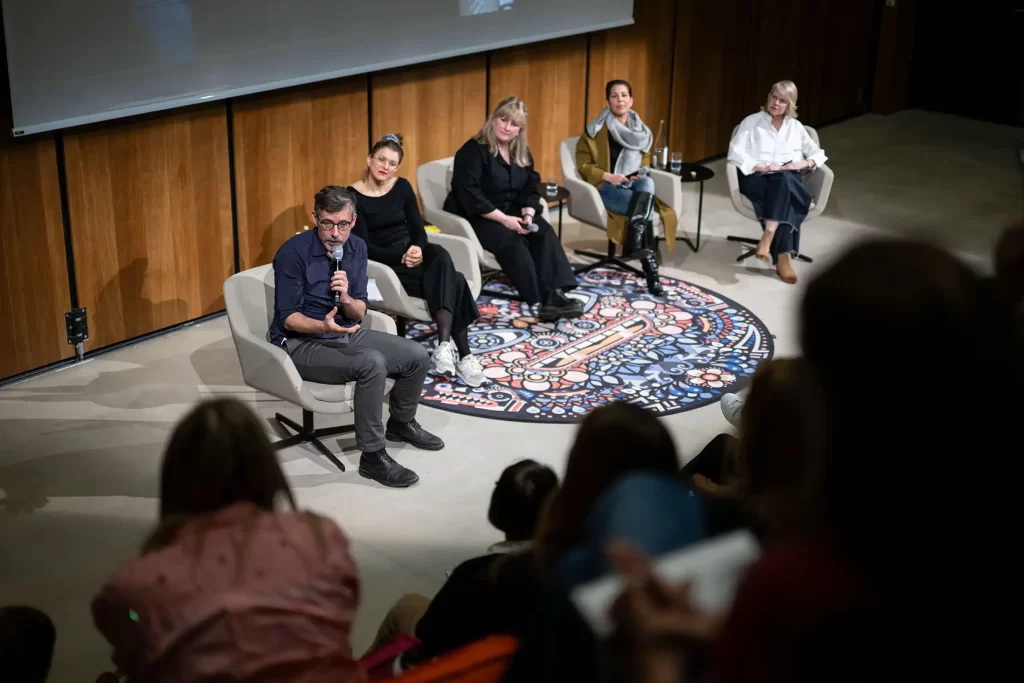
The essence of communities
One thing quickly became clear during Sabine Hansky's introduction and the panel's introduction to the topic: a community cannot be clearly defined - and that's a good thing. It is much more than a loose group of like-minded people, which can mean something different for everyone. However, it is almost always about exchange, trust and working together on ideas or projects.
At Grafikmagazin , we have often experienced that a lively community is not a nice-to-have, but an essential network - a kind of concession that we need each other. Our crowdfunding campaign to launch the magazine was backed by well over 500 supporters. We spent the first two years in the coworking space of the Ruffinihaus, where encounters and conversations shaped our work. Our conferences - from the Creative Paper Conference to the Print and Design Conference - regularly bring together creative people who might otherwise never have met. The evening at Munich Urban Colab also impressively demonstrated how much people are looking for personal exchange in physical spaces - because virtual networks cannot replace real encounters.
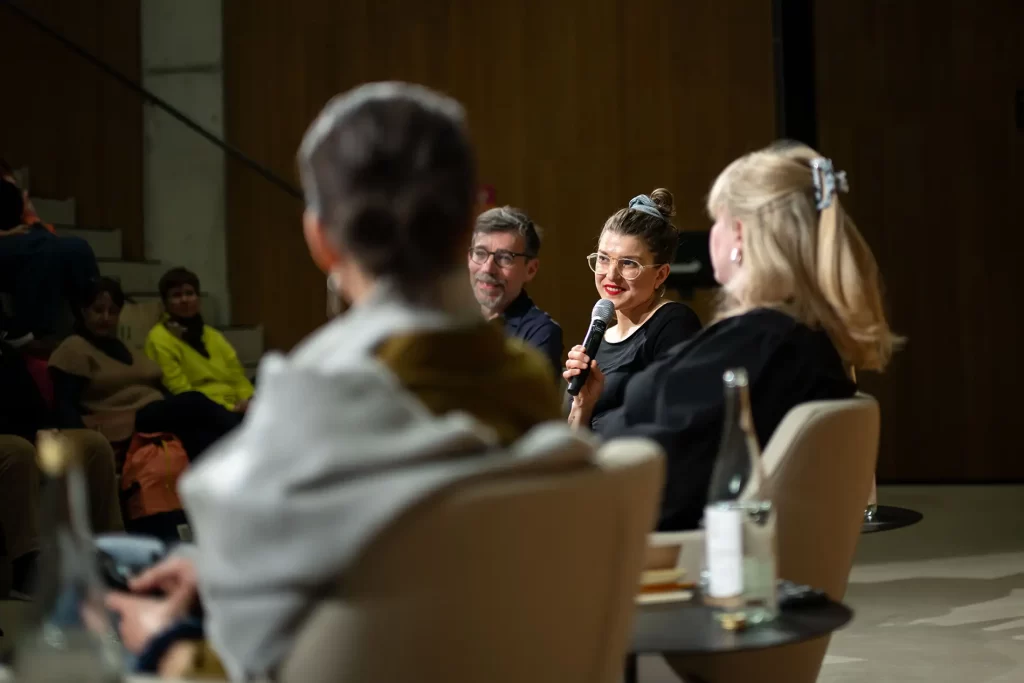
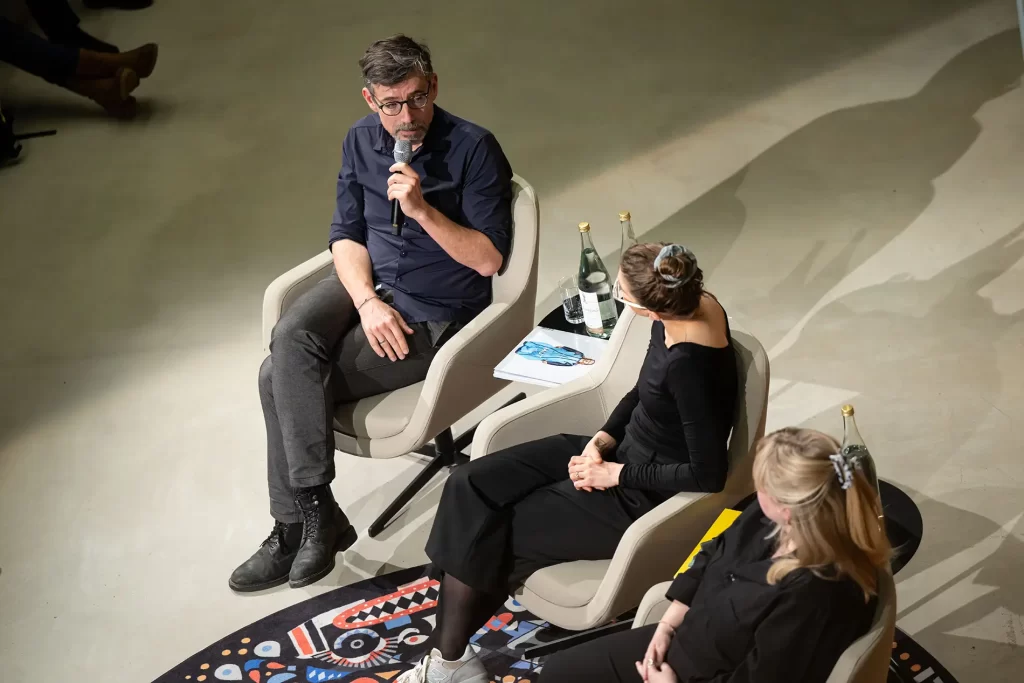
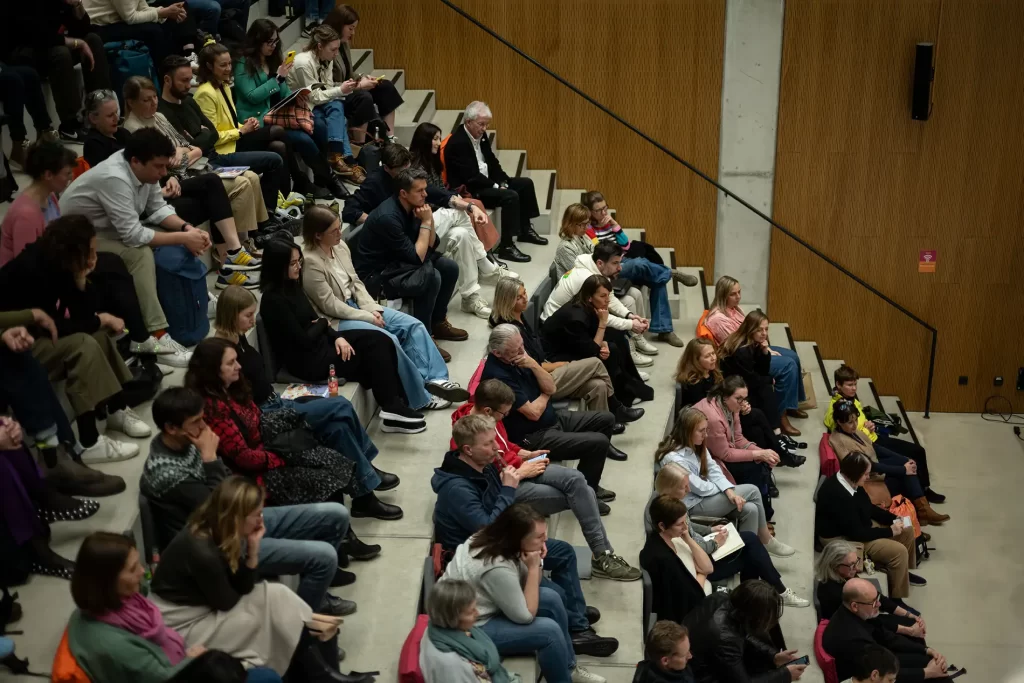
Key findings from the discussion
Beware of bubble formation: As valuable as a community is, it can also have an exclusionary effect. Those who are not careful remain among themselves. Digital algorithms further reinforce this tendency. The challenge is to keep communities open and permeable. A great initiative here is the local munich creative business week, which, with this year's motto "How to design a vibrant community", has set itself the task of reaching out to a wide variety of players and creating synergies. The program of the mcbw Design Summit also reflects this; the day full of keynotes and panels will also take place at Munich Urban Colab on 12 May 2025.
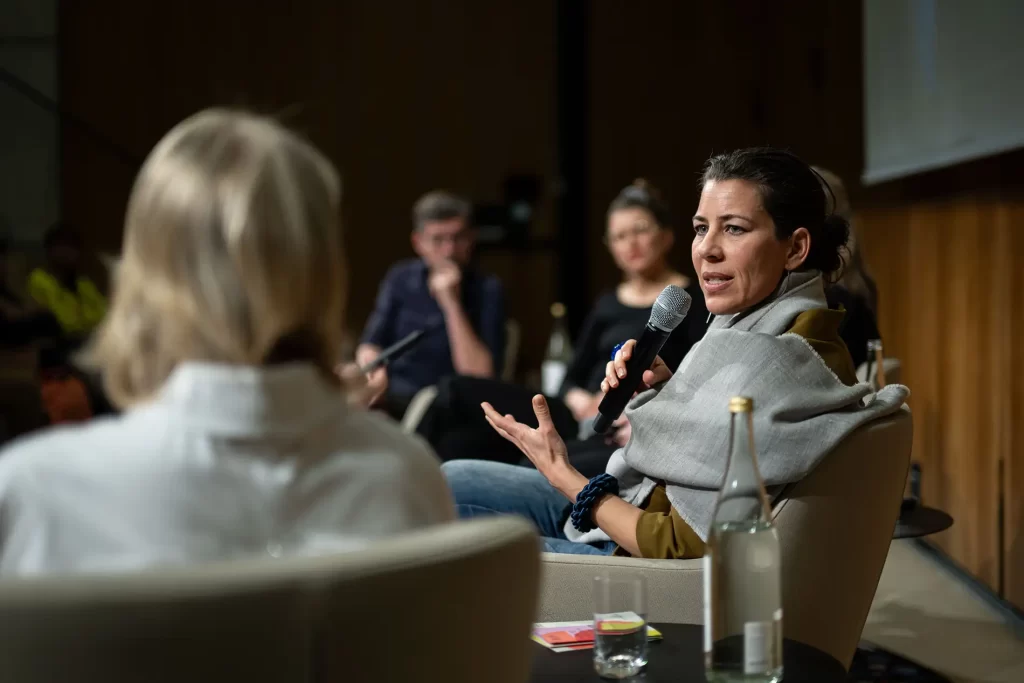
The value of physical locations and direct exchange also remain essential, as was emphasized several times in the panel. The Munich Urban Colab itself shows how places can facilitate encounters and collaboration. But without committed people to animate and network these spaces, it remains just a building. Community managers play a crucial role here, as Marco Eisenack, who has co-initiated countless coworking spaces and interim uses in addition to his work on Mucbook, also talked about. He made a strong plea for more genuine interest in co-creation and engagement in the local area: "Empathy is not loud - at least not compared to hate. The virtual world cannot be the only solution here, as it is too quiet there. We need real meeting places, because only there can we really feel it."
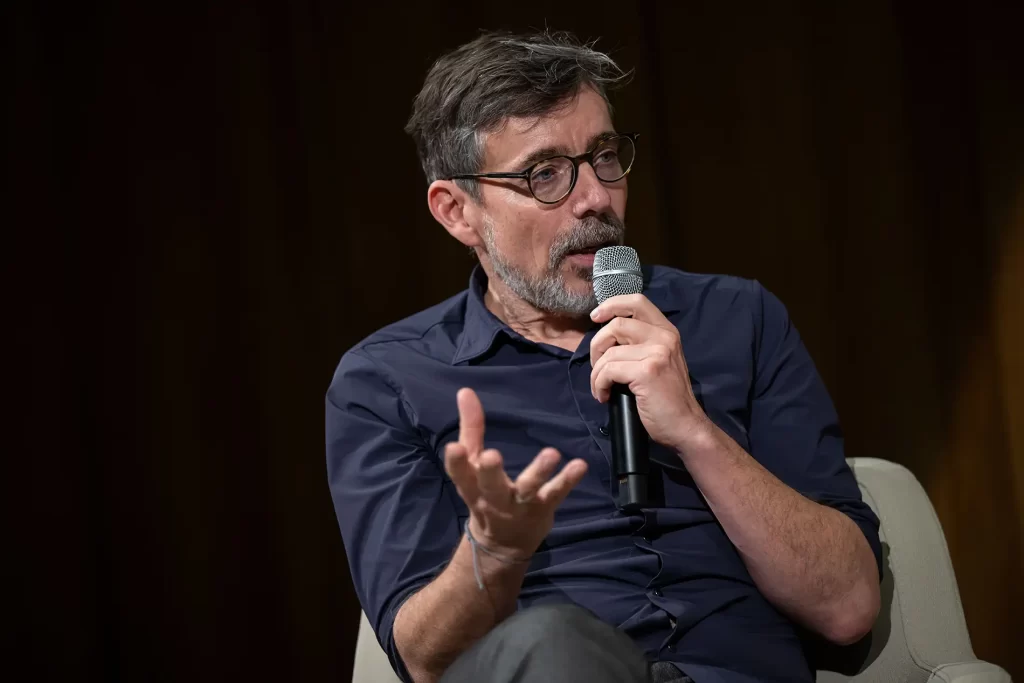
A comment from the audience also defined volunteering as a driving force, which was met with much approval: Many successful communities are based on voluntary work. Without people who dedicate their free time to a cause, many initiatives would not even exist. However, urban initiatives, such as those reported by Julia Christiansen, are of course also needed. It is just as relevant for economic players to get involved here; the Mars Wrigley Foundation presented the "Zusammen.Halt" funding project just before the panel, which supports meeting places in the greater Munich area with up to $100,000 and thus wants to "make an active contribution to a sustainable and vibrant Munich", it said.
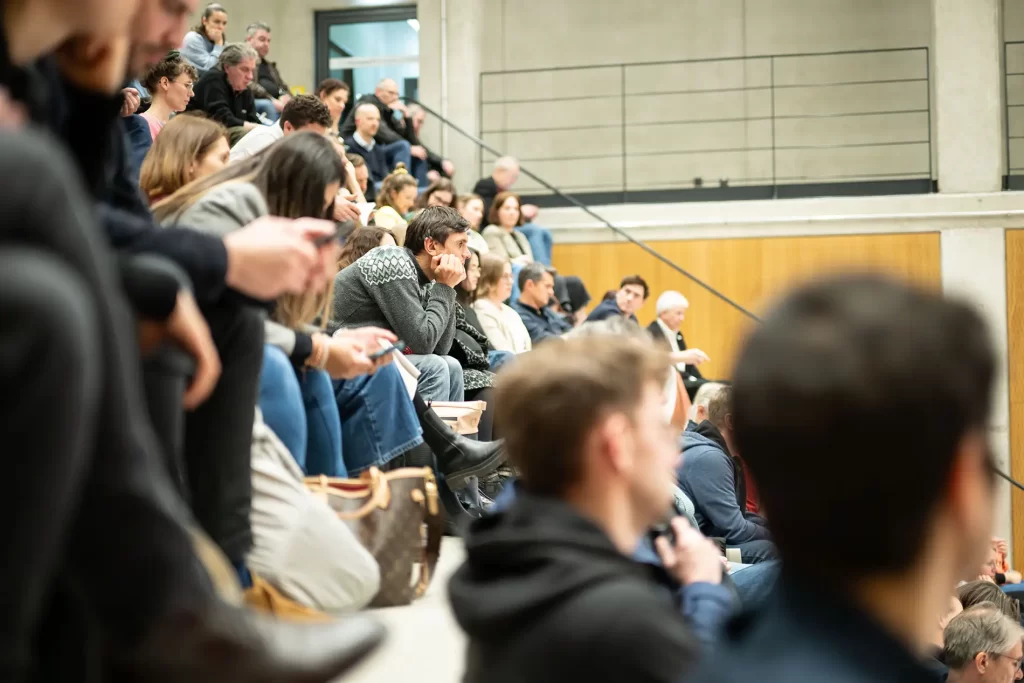
For more real networking in the creative scene!
For Grafikmagazin , the focus of the evening was on networking with the creative quarter and the Munich design scene - a community that influences and inspires us in our work time and time again. Many of our articles arise from conversations and encounters, often directly in the neighborhood or at events. The Munich Urban Colab and the Kreativquartier are great examples of these synergies - they enable spontaneous collaboration and the direct exchange that makes innovation possible in the first place.
However, we also want to use our work beyond Munich's borders to repeatedly advocate for more real collaboration and local networking. The successful "Inspiration & Talk" format impressively demonstrated that communities are essential for innovation, social cohesion and liveable cities, also thanks to the diverse contributions from the audience. The discussion on stage was inspiring, and the conversations afterwards were all the more valuable.
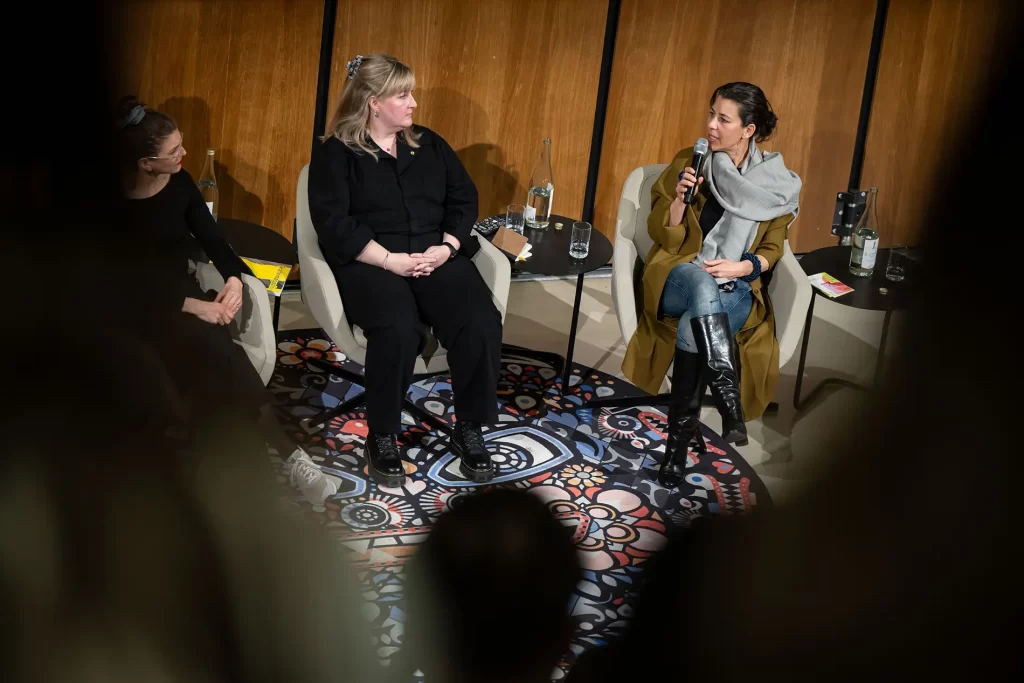
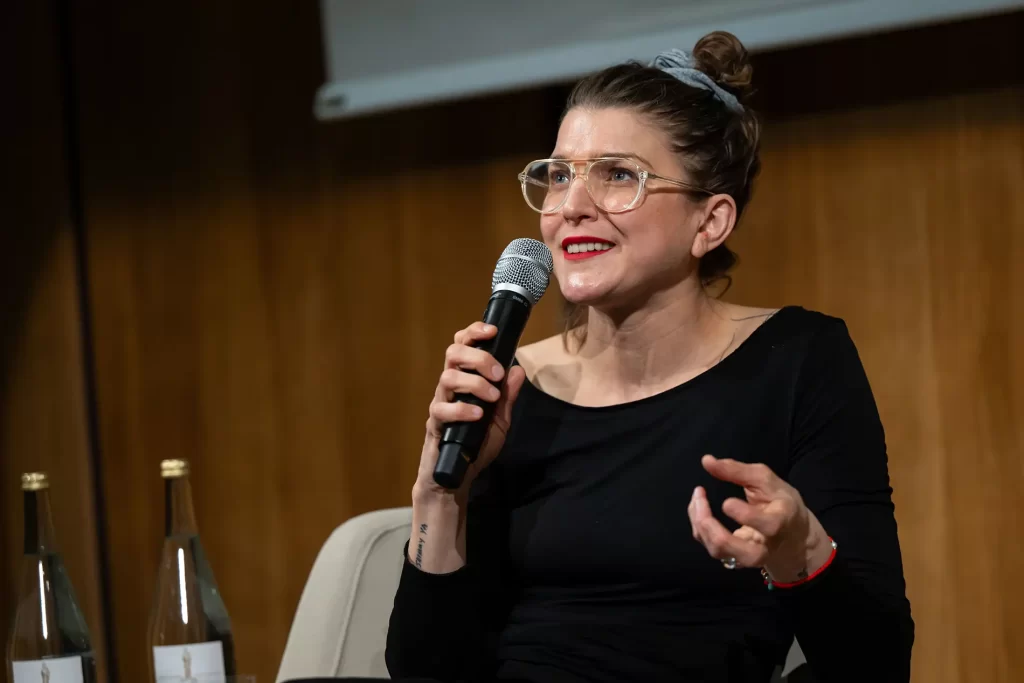
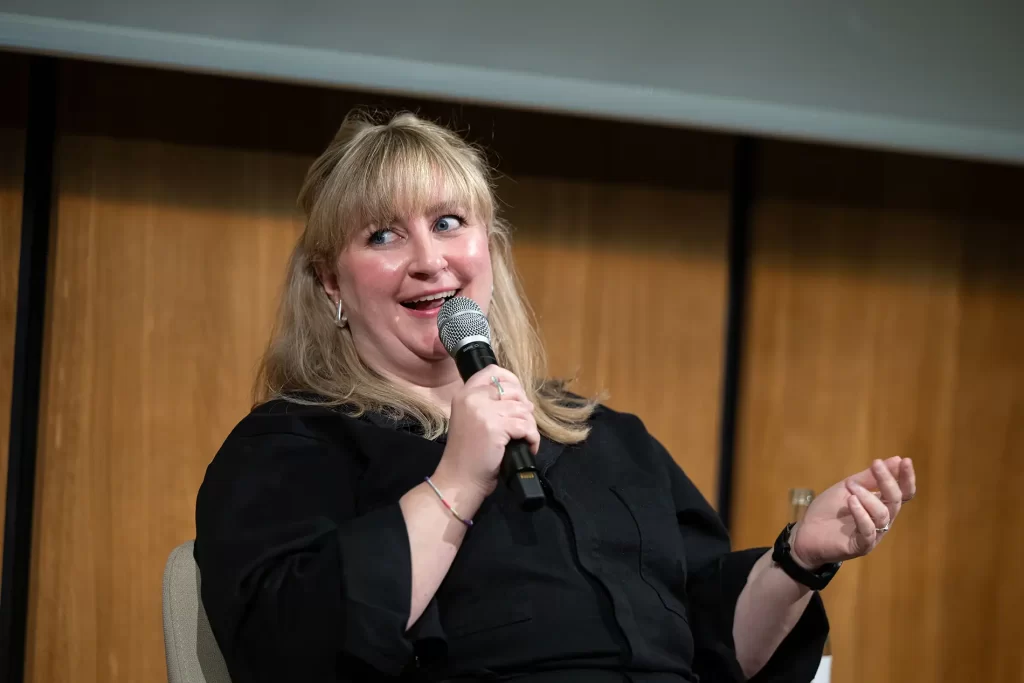
Thanks to Sabine Hansky for the great moderation and to all the guests for the lively exchange! It was a pleasure to be part of this group.
More about the program and background of the Innovation Hub and Start-up Center Munich Urban Colab
This year's motto and program of the munich creative business week
All information about the mcbw Design Summit, which will take place at the Munich Urban Colab

